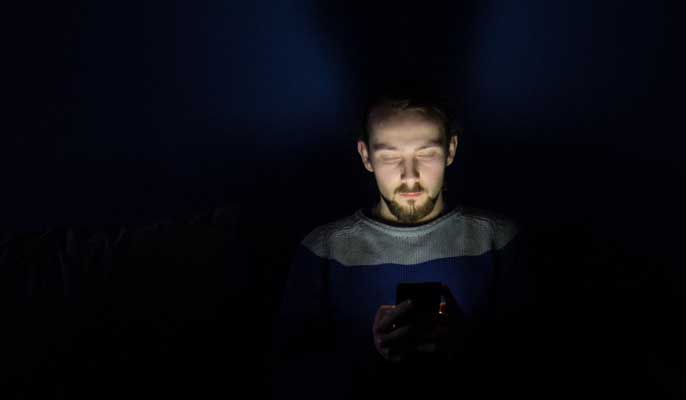
Since birth, television has pretty much been a fact of life for people my age. From watching cartoons on Saturday mornings to staying up for thirty-episode binges on Netflix, it seems like we’ve always been hooked up to screens.
Since the invention of the smartphone and the introduction of the tablet to normal life, things only seem to have gotten worse; now we can access almost anything all the time. Has this constant rush of content caused us to get distracted from our real priorities?
The pros of screens
No matter where we are, we can keep up with what’s going on all over the world. Take Blue Planet Live for example, which recently hit our screens. Through something we all find domestic and perfectly normal, we were suddenly allowed to see things that we wouldn’t normally see. From the comfort of the sofa, we can learn new things through documentaries or see the world shift and change before our eyes on the news. We can even briefly escape the world to be whoever we want for an hour or two (or maybe eight…). TV is also a good way to bond with people; watching a show together can form a key part of many families’ time together.
TV’s ugly side
Nowadays, most forms of advertising show us a ‘perfect’ (i.e. unobtainable) image which has probably undergone hours of editing before it meets the public eye. Slowly, these toxic images are making their way into programs, too. Popular shows like Love Island show women who seem impossibly beautiful and men who seem to be constantly toned and tanned. Shows like this play perfected looks off as natural, before appearing in front of millions of insecure people, who then compare themselves to them. Being constantly exposed to celebrity, perfection and unrealistic standards is quite drastic; some children as young as ten years old have been found to develop eating disorders as a result of what their TVs are feeding them.
Another downside of such widespread TV and screen influence is that, as a society, our priorities have changed. One example of this is the Jordyn Woods and Tristan Thompson scandal which hit everyone’s news feeds this year. Videos were released of Jordyn Woods (best friend to Kylie Jenner) and Tristan Thompson (the father of Khloe Kardashian’s daughter, True) kissing at a house party. This was a massive blow to the Kardashian family, and Kylie apparently kicked Jordyn out of their shared house in order to support her sister (Khloe). Most of us know that this family seems to attract drama (they’ve been on TV since 2007!), so by now, we should be used to it. However, the scandal managed to trend everywhere, and despite crises in immigration, health, clean water and all kinds of other horrors around the globe, they still stole the international spotlight.
The climate crisis
Students are striking every Friday all over the world to try to prevent humanity’s devastating impact on the planet from going any further. Imagine if every person who spent their time talking about the Kardashians’ drama was instead raising awareness for the fact that we may lose 2/3 of all animals by 2020 due to the climate change. Since when have our priorities been on a family who we don’t even know, and not on the world around us? Some of us seem to be more concerned with what our favourite celebrity is eating for breakfast rather than the amount of plastic that is plaguing streets and poisoning oceans.
I’m not saying television is a bad thing. I think it is one of the most amazing inventions in history. However, I ask you, as readers, not to compare yourselves to the unrealistic images that you see on screen. You could also turn off a light or go on a litter-picking walk rather than spending three hours processing information which doesn’t really matter. While I’m at it, here’s a note those in charge of programming: with great power comes great responsibility; let’s make sure our influence on people is positive.






I think…the real power of the global realm is concentrate in the Internent network